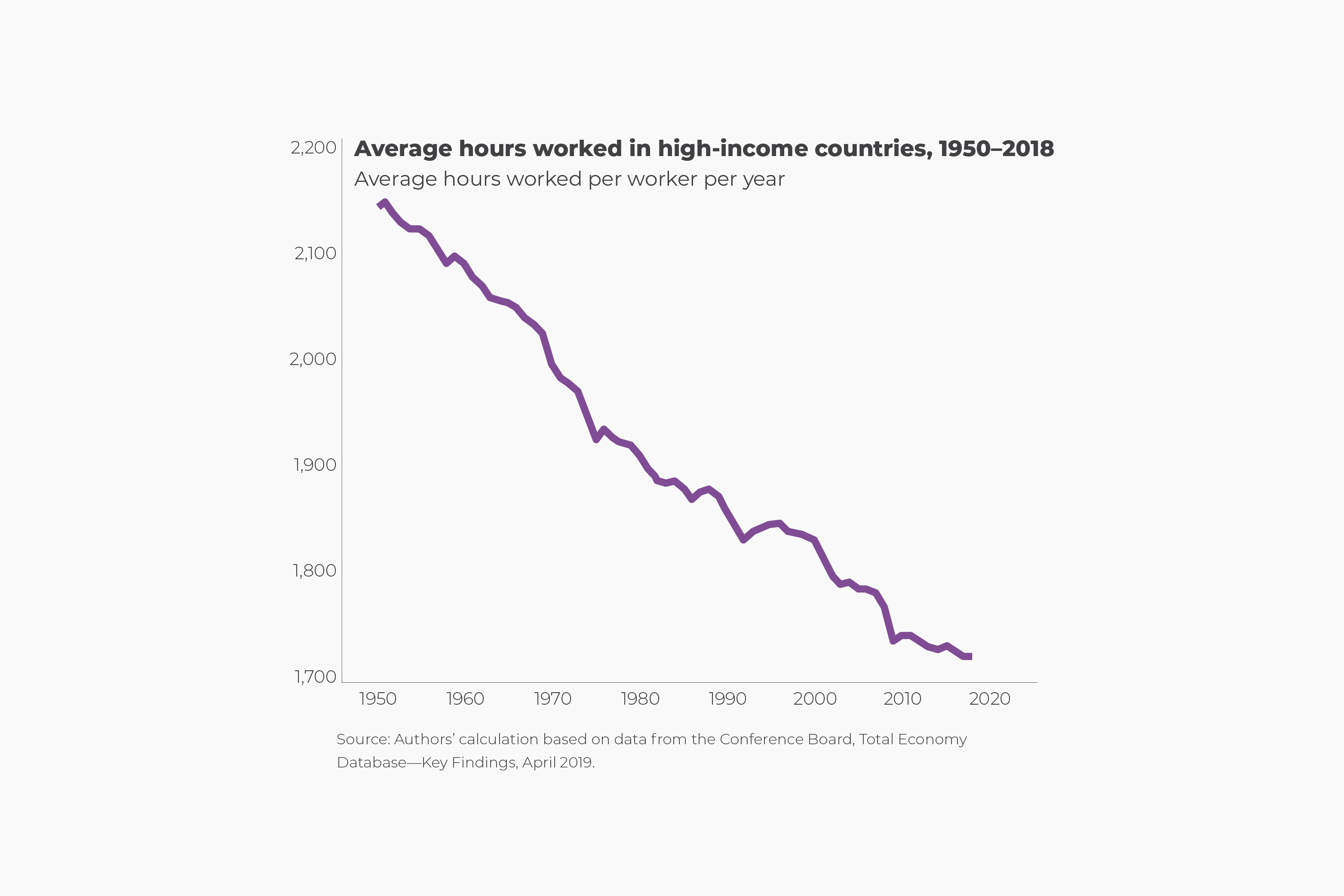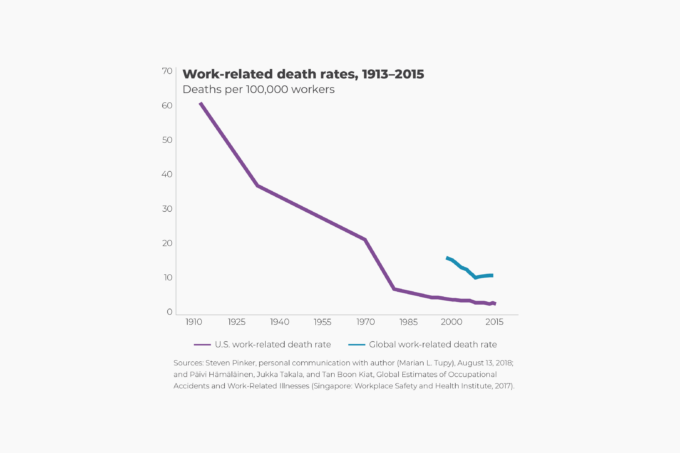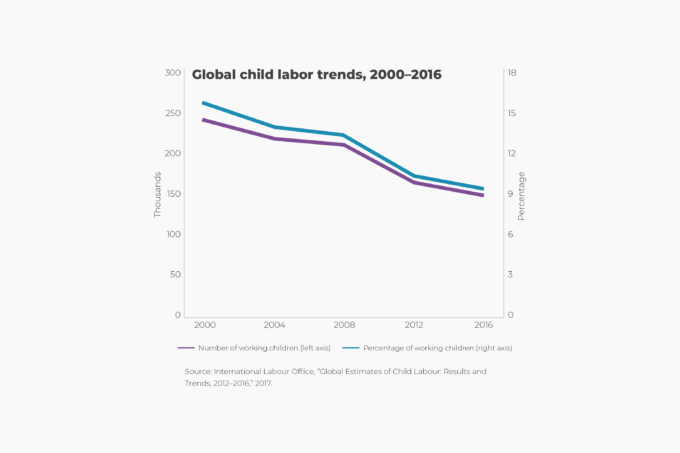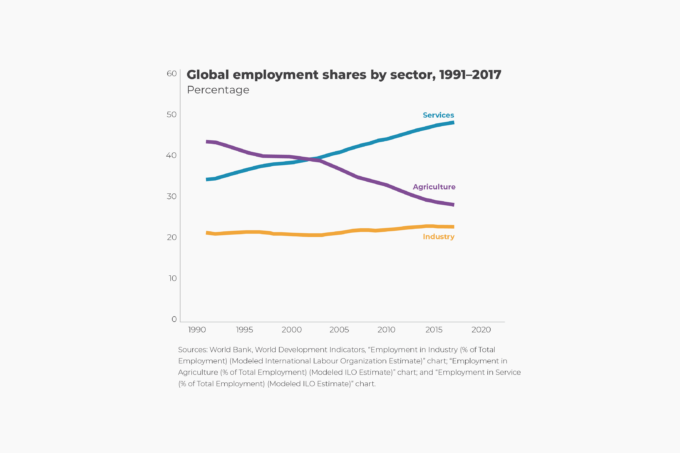Based on their observations of extant hunter-gatherer societies, scholars estimate that our foraging ancestors worked anywhere between 2.8 hours and 7.6 hours per day. Once they secured their food for the day, they stopped. The foragers’ workload was comparatively low, but so was their standard of living. Our ancestors’ wealth was limited to the weight of the possessions they could carry on their backs from one location to the next.
About 12,000 years ago, people started to settle down, cultivate crops, and domesticate animals. The total number of hours worked rose, but people were willing to sacrifice free time in exchange for a more stable food supply. Since artificial lighting was prohibitively expensive, daylight regulated the amount of work that could be done. In summer, most people worked between 6 and 10 hours in the fields and an additional 3 hours at home. In winter, daylight limited the total number of work hours to 8.
By 1830, the workweek in the industrializing West averaged about 70 hours, Sundays excluded, or 11.6 hours of work per day. By 1890, that fell to 60 hours per week, or 10 hours per day. Thirty years later, the workweek in advanced societies stood at 50 hours, or 8.3 hours per day. Today, people in advanced societies work fewer than 40 hours per week. That still amounts to roughly 8 hours per day, because workers typically don’t work on Saturdays.
The overall number of hours worked has declined in tandem with increasing prosperity. Plainly put, the richer the country, the less people work. Data for developing countries are difficult to come by, but the population-adjusted total annual number of hours worked in 81 developed countries1 and their dependencies declined from 2,123 in 1950 to 1,732 in 2017. That’s a decrease of 18.4 percent.
Based on the available data, Germans worked the fewest hours (1,347) and Singaporeans worked the most hours (2,237). With 1,763 work-hours per year, the United States was squarely in the middle of the pack in 2017.113
- Andorra, Antigua and Barbuda, Argentina, Aruba, Australia, Austria, Bahamas, Bahrain, Barbados, Belgium, Bermuda, British Virgin Islands, Brunei Darussalam, Canada, Cayman Islands, Channel Islands, Chile, Croatia, Curaçao, Cyprus, Czech Republic, Denmark, Estonia, Faroe Islands, Finland, France, French Polynesia, Germany, Gibraltar, Greece, Greenland, Guam, Hong Kong SAR, Hungary, Iceland, Ireland, Isle of Man, Israel, Italy, Japan, Kuwait, Latvia, Liechtenstein, Lithuania, Luxembourg, Macao SAR, Malta, Monaco, Netherlands, New Caledonia, New Zealand, Northern Mariana Islands, Norway, Oman, Palau, Panama, Poland, Portugal, Puerto Rico, Qatar, Saint Martin (French side), San Marino, Saudi Arabia, Seychelles, Singapore, Sint Maarten (Dutch side), Slovak Republic, Slovenia, South Korea, Spain, St. Kitts and Nevis, Sweden, Switzerland, Taiwan, Trinidad and Tobago, Turks and Caicos Islands, United Arab Emirates, United Kingdom, United States, Uruguay, and U.S. Virgin Islands.








